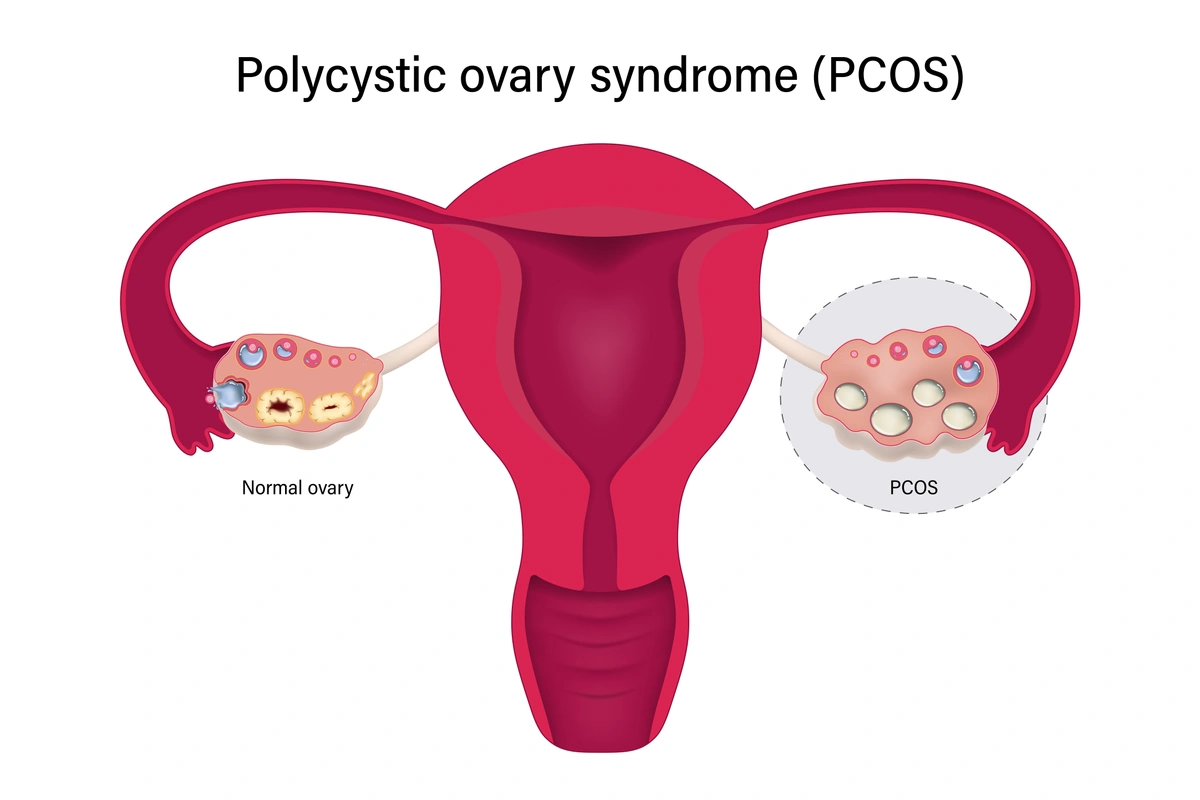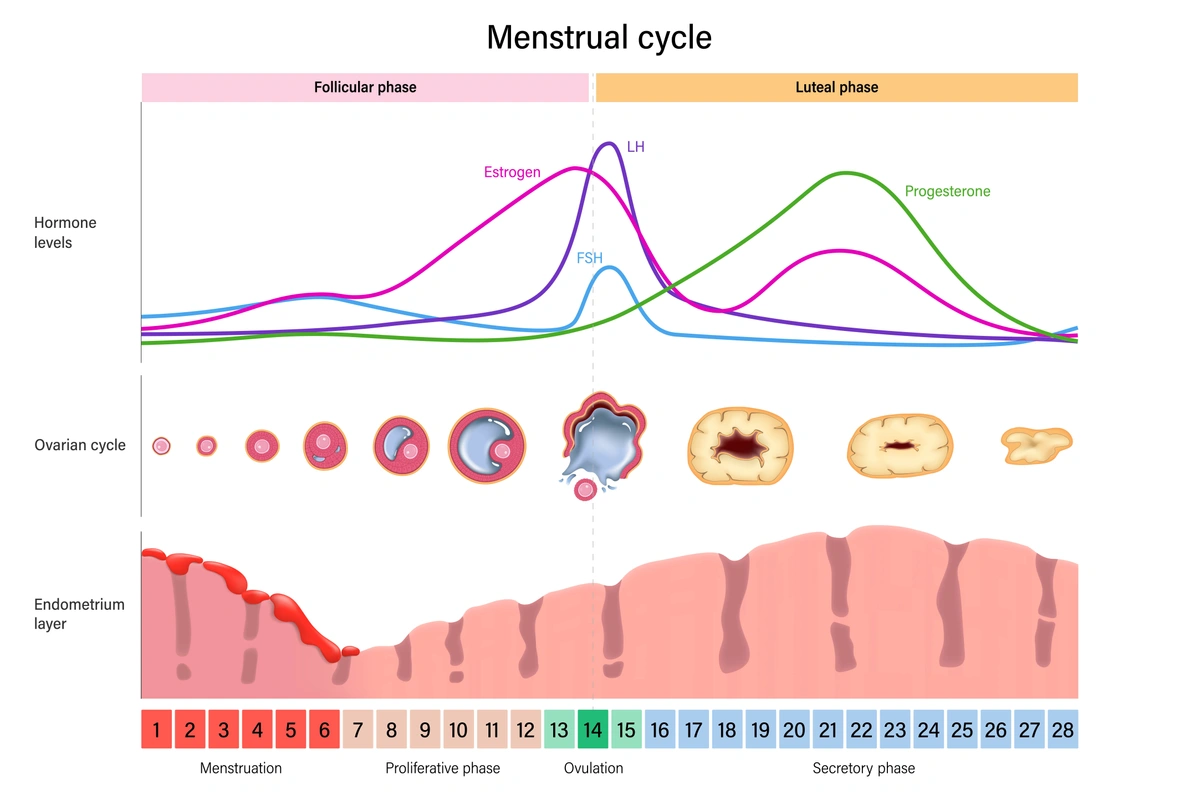
Understanding PCOS: A Fertility Guide for Hopeful Parents
Polycystic Ovary Syndrome (PCOS) is one of the most common causes of infertility—but it’s also highly manageable with the right care and support. At Tennessee Fertility Institute (TFI), we help many patients with PCOS understand their diagnosis, regain control of their reproductive health, and build the families they’ve been dreaming of.
In this post, we’ll break down what PCOS is, how it affects fertility, and the steps you can take to improve your chances of conceiving.
What Is PCOS?
Polycystic Ovary Syndrome (PCOS) is a hormonal disorder that affects how the ovaries function. It is characterized by at least two of the following:
-
Irregular or absent ovulation
-
Excess levels of androgens (male hormones like testosterone)
-
Polycystic ovaries (seen on ultrasound as enlarged ovaries with many small follicles)
Despite the name, not all people with PCOS have ovarian cysts.
Illustration of a “normal” ovary and one with PCOS
How PCOS Affects Ovulation and Fertility
In a typical menstrual cycle, the ovaries release an egg each month (ovulation). For those with PCOS, hormonal imbalances can interfere with this process. Without regular ovulation, conception becomes difficult.
Common fertility-related challenges for people with PCOS include:
-
Irregular or skipped periods, making it hard to predict ovulation
-
Impaired egg maturation, affecting egg quality
-
Insulin resistance, which can further disrupt hormone levels and ovulation
The good news: With the right treatments, many people with PCOS can ovulate regularly and achieve a healthy pregnancy.
Illustration of a menstrual cycle
Managing PCOS to Support Reproductive Health
While PCOS cannot be “cured,” its symptoms can be effectively managed—especially when fertility is the goal. Your care plan may include a combination of lifestyle changes and medical treatment.
Lifestyle Strategies:
-
Balanced Nutrition: A diet rich in fiber, lean proteins, and healthy fats can support hormonal balance and regulate blood sugar levels.
-
Exercise: Regular physical activity improves insulin sensitivity and supports weight management.
-
Stress Reduction: Chronic stress can worsen hormonal imbalances. Yoga, mindfulness, and adequate sleep can help.
Even modest weight loss (5–10% of body weight) can improve ovulation in some people with PCOS.
PCOS and Other Health Conditions
PCOS is closely linked to several metabolic and emotional health issues. Addressing these early on can improve both fertility outcomes and long-term wellness.
-
Insulin Resistance and Type 2 Diabetes: Many individuals with PCOS have difficulty processing insulin, leading to higher blood sugar levels and an increased risk of diabetes.
-
Metabolic Syndrome: A cluster of conditions—including high blood pressure, high cholesterol, and abdominal fat—can raise the risk of heart disease.
-
Mental Health Challenges: PCOS has been associated with higher rates of anxiety, depression, and body image concerns.
At TFI, we take a whole-person approach to care, addressing both reproductive and overall health needs.
Fertility Treatment Options for PCOS
For those trying to conceive, there are several effective options to encourage ovulation and support pregnancy:
1. Ovulation Induction Medications
-
Letrozole (Femara): Often the first-line treatment for PCOS-related infertility, Letrozole stimulates ovulation with fewer side effects than older medications.
-
Clomiphene Citrate (Clomid): This is another commonly used medication that helps trigger ovulation.
2. Insulin-Sensitizing Agents
-
Metformin: This is used to improve insulin resistance and restore regular ovulation, especially when combined with other treatments.
3. Intrauterine Insemination (IUI)
This treatment option may be recommended when ovulation-inducing medications are not successful on their own.
4. In Vitro Fertilization (IVF)
IVF is a more advanced option that may be ideal for patients who do not respond to other treatments or have additional fertility factors.
You’re Not Alone—And You Have Options
PCOS affects up to 1 in 10 people of reproductive age. It can feel overwhelming, but with expert guidance and evidence-based care, it is absolutely possible to manage PCOS and achieve pregnancy.
At Tennessee Fertility Institute, we understand the unique challenges PCOS presents—and we’re here to help you navigate them with personalized treatment, compassionate support, and leading-edge fertility care.
Ready to Take the Next Step?
If you’ve been diagnosed with PCOS or are struggling to conceive, we invite you to schedule a consultation with one of our fertility specialists. Together, we’ll develop a plan that supports your reproductive and overall health goals.



